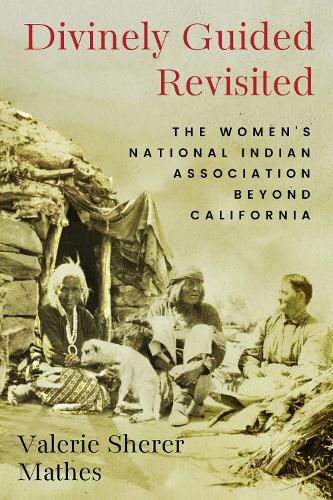Readings Newsletter
Become a Readings Member to make your shopping experience even easier.
Sign in or sign up for free!
You’re not far away from qualifying for FREE standard shipping within Australia
You’ve qualified for FREE standard shipping within Australia
The cart is loading…






The Women's National Indian Association (WNIA) was a volunteer organization of middle- and upper-class white women that grew out of Philadelphia's First Baptist Church's Home Missionary Society in 1877. The WNIA initially served as a reform association until the Indian Rights Association took over much of its political work, enabling members to return to their missionary roots and fund more than sixty mission stations across the country. It lasted until 1951. Although most often viewed as simply an Indian reform association, WNIA members also engaged in broad philanthropic and humanitarian non-Indian work and were at times able to rise above Indian reformers' negative assimilationist policy and fund modern reservation hospitals, promote Native arts, purchase homes for landless Indians of Northern California, and establish a missionary station actually requested by a small Mission Indian group.
The leading expert on the WNIA, Valerie Sherer Mathes rigorously documents their progressive efforts to present a balanced history of the organization, ensuring their legacy alongside other volunteer groups such as the Woman's Christian Temperance Union, the National Woman Suffrage Association, the American Woman Suffrage Association, and the General Federation of Women's Clubs.
$9.00 standard shipping within Australia
FREE standard shipping within Australia for orders over $100.00
Express & International shipping calculated at checkout
The Women's National Indian Association (WNIA) was a volunteer organization of middle- and upper-class white women that grew out of Philadelphia's First Baptist Church's Home Missionary Society in 1877. The WNIA initially served as a reform association until the Indian Rights Association took over much of its political work, enabling members to return to their missionary roots and fund more than sixty mission stations across the country. It lasted until 1951. Although most often viewed as simply an Indian reform association, WNIA members also engaged in broad philanthropic and humanitarian non-Indian work and were at times able to rise above Indian reformers' negative assimilationist policy and fund modern reservation hospitals, promote Native arts, purchase homes for landless Indians of Northern California, and establish a missionary station actually requested by a small Mission Indian group.
The leading expert on the WNIA, Valerie Sherer Mathes rigorously documents their progressive efforts to present a balanced history of the organization, ensuring their legacy alongside other volunteer groups such as the Woman's Christian Temperance Union, the National Woman Suffrage Association, the American Woman Suffrage Association, and the General Federation of Women's Clubs.